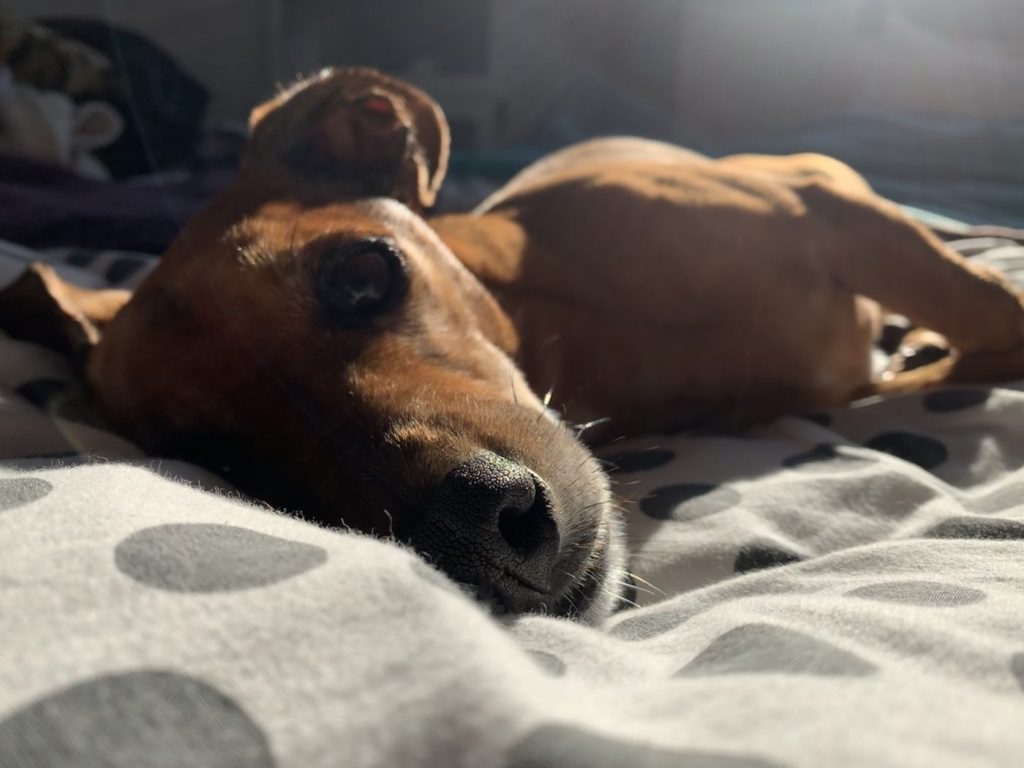I am awake at 5:43 a.m., way before my alarm is due to go off. That’s when everything comes crumbling down. It doesn’t matter if I had nice dreams or went to sleep smiling while hugging Jarvis, my sausage dog. The familiar dread is palpable. The more awake I become, the higher my anxiety levels. My throat tightens, my breathing quickens. I remember my current circumstances, and how I am really feeling deep inside.
Something’s not right. Or maybe it is, and it is just my endometriosis.
Five days ago I called my general practitioner because my symptoms were becoming too uncomfortable to ignore. I was put on a phone queue that, very politely, attempted to dissuade me from persisting in my desire to talk to someone. “Our lines are busy … canceled appointments due to COVID.” Still, I didn’t give up.
It was the grown-up thing to do. “If things don’t feel right, don’t ignore them, Jess,” said a dear friend a few days earlier. After 12 minutes of waiting in telephonic limbo, I finally got through to a receptionist. She scheduled me for a phone appointment with my new general practitioner, five days in the future.
By then, I hope the numbing pain in my pelvis will have somehow evaporated.
I pray my constant bloating is nothing other than my moody digestive system. I bargain with the universe: “Let it be nothing, please. I will do better.” I want to be able to carry on working, take Jarvis on long walks, run up hills, hold my oldest dog for longer periods of time. I want to run the Brighton Marathon and raise a silly amount of money for something that matters. I want to learn to play more than one note on my beautiful guitar.

Until my appointment, I carry on. I dye my hair pink, I buy a secondhand fake fur coat for the price of a coffee. I smile at my friends, I go on dog playdates. I listen on repeat to an obscure song from the ’80s I discovered only this week.
Endometriosis has no cure.
It requires management and a long-term commitment to active, purposeful self-care. Part of that means seeing a doctor more often than we’d like. I have ignored that side of my disease since my specialist retired. Having him drop from my endometriosis treatment … that felt gutting.
I had finally found someone who was helping me get my life back and, without much warning, he left. The surgery he’d performed on me had given me so much. I regained control over my bladder, needing no longer to run to the bathroom. It gave me back my love life, after years of painful sex. Goodbye guilt, goodbye inadequacy. My right hip moved better. My pelvic pain lessened.
How could he retire? Finding him was like winning an Oscar: “I’d like to thank the doctor who referred me, and my ovaries, for sticking with me.” Yet, my specialist is not an award, but a human being. He had a career that had spanned long enough. It was time to say goodbye and, for me, to go back to square one.
At that time, I couldn’t face the uphill climb.
I hid and pretended I could carry on regardless. If I stayed quiet, surely the endometriosis monster wouldn’t find me. I played the happy denial game for more than a year. But now something feels amiss, and I can’t hide anymore.
To make things more troubling, because my supportive general practitioner retired while I was trapped in Madrid during the pandemic lockdown, I get an all-new, fresh batch of intrusive questions, complicated explanations, and potentially unsupportive doctors.

Except I’m a new me. Years of knowing the name of the beast have turned me into the patient who doesn’t shy back from arguing. Sorry, doctors, I’m your worst nightmare. But only because the medical system and the prospects for endometriosis patients are equally nightmarish. I’m a stubborn warrior in this broken game. It’s the only way to be.
And still, warriors need their sleep. I am wide awake, and it’s only 5:50 a.m. Jarvis stirs in his bed. It’s still dark, but I push aside the circling thoughts and get on with my day. Where’s my coffee?
***
Note: Endometriosis News is strictly a news and information website about the disease. It does not provide medical advice, diagnosis, or treatment. This content is not intended to be a substitute for professional medical advice, diagnosis, or treatment. Always seek the advice of your physician or other qualified health provider with any questions you may have regarding a medical condition. Never disregard professional medical advice or delay in seeking it because of something you have read on this website. The opinions expressed in this column are not those of Endometriosis News or its parent company, BioNews, and are intended to spark discussion about issues pertaining to endometriosis.

